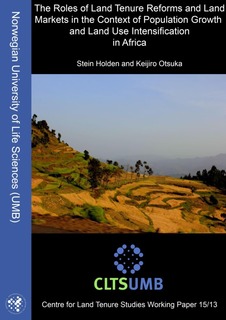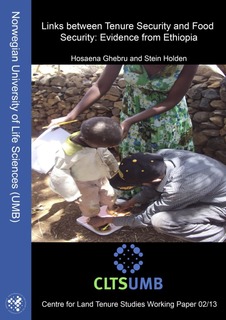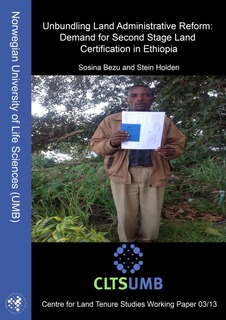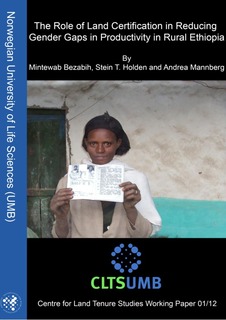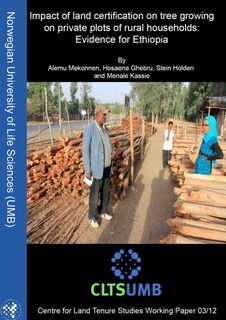Location
The Centre for Land Tenure Studies was opened at the Nowegian University of Life Sciences (NMBU) on the 27th of June 2011 resulting from a joint initiative by researchers at the Department of International Environment and Development (Noragric), the School of Economics and Business, and the Department of Landscape Architecture and Spatial Planning. In 2012 was joined by the Department of Ecology and Natural Resource Management.
Mission
The Centre for Land Tenure Studies (CLTS) at NMBU is established to further the study of land tenure. Land tenure studies define a broad and complex field of study cutting across many disciplines. For CLTS this entails, but is not limited to, the following activities:
- Provide a common arena for discussing land tenure issues, including a series of seminars directed to present new research or important theoretical perspectives. This may be designed as part of an educational program.
- Promulgate a joint series of working papers.
- Support international publication of articles and books.
- Develop and conduct joint courses at both Master and PhD level.
- Initiate and support exchange of researchers.
- Participate in research networks related to land tenure.
- Maintain a public list of collaborating institutions and researchers.
- Initiate and develop applications for research funds to support basic research on land tenure both by our own efforts and in collaboration with other research groups working on land tenure questions.
In its activities the centre will use English as its working language as far as practically possible. In short we may say that the mission of the Centre for Land Tenure studies is to enhance collaboration across departments at NMBU; to strengthen the visibility of NMBU activities within the field of land tenure; to strengthen NMBU’s international collaboration and networks within the field; to contribute to research and knowledge generation on land tenure issues; to help build capacity in the South and in Norway within the field; to disseminate policy lessons, and to contribute to policy debates.
Resources
Displaying 56 - 60 of 67The roles of land tenure reforms and land markets in the context of population growth and land use intensification in Africa
This article provides a review of the past and potential future roles of land tenure reforms and land markets in Sub-Saharan Africa (SSA) as responses to population growth in the process of land use intensification and livelihood transformation. The farm size distribution and the existence of an inverse relationship (IR) between farm size and land productivity in SSA and the implications of this relationship for efficiency and equity are investigated.
Links between tenure security and food security : evidence from Ethiopia
The study uses five rounds of household panel data from Tigray, Ethiopia, collected in the period 1998–2010 to assess the impacts of a land registration and certification program that aimed to strengthen tenure security and how it has contributed to increased food availability and thus food security in this food-deficit region. Our first survey took place just a year before the intervention (the land certification program).
Unbundling land administrative reform : demand for second stage land certification in Ethiopia
Ethiopia has implemented one of the largest, fastest and cheapest land registration and certification reforms in Africa. While there have been evidences of positive impacts of this land reform in terms of increased investment, land productivity and land rental market activities, the government is now piloting another round of land registration and certification that involves GPS measurement and computer registration.
The role of land certification in reducing gender gaps in productivity in rural Ethiopia
This paper analyses the impact of a low cost and restricted rights land certification program on the productivity of female-headed households. The analysis is based on plot level panel data from the East Gojjam and South Wollo Zones in the Amhara region of Ethiopia. The results suggest a positive and significant effect of certification on plot-level productivity, particularly on plots rented out to other operators.








